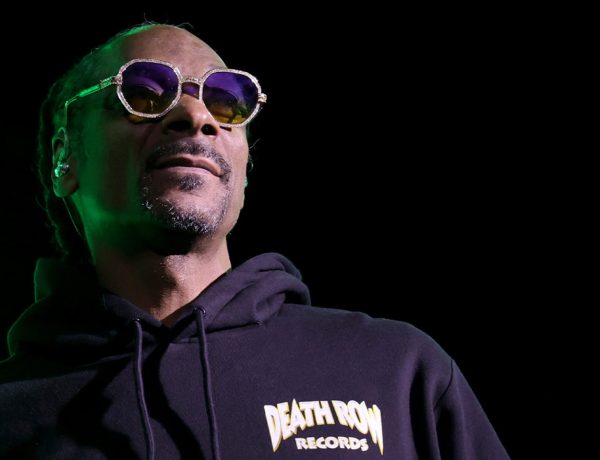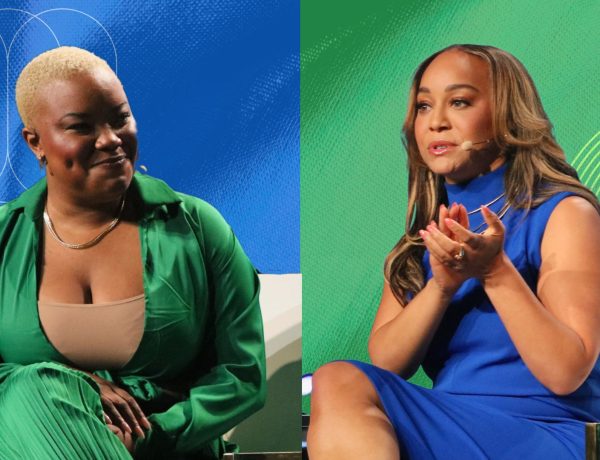David C. Williams’ innovative spirit remained a driving force in his journey to overcome obstacles and significantly impact the tech space.
The engineer was born in Dallas, TX, in what he describes as the “poorest corner of the city.” At an early age, he became an avid reader, consuming up to eight books a week at times, he says. Williams’ inquisitive nature was further fueled as he read more books, and he maintained this even in the face of adversity. He lost his home in a fire, and at the age of 8 his father died by suicide.
“There’s a quote that Einstein has that says ‘innovation is born out of necessity.’ And when I combine that creativity that my parents started me off with and the hardships that were soon to follow, losing my dad or the house fire — just all sorts of things that went on — I never let go of the creativity,” Williams told AFROTECH™.
He continued, “Many people who live or come from underserved communities have a lot of ingenuity. And I figured out that ingenuity, although there had been a lot of hardships, was actually a competitive advantage in technology.”
Williams’ foray into technology was unconventional. Initially, he did not intentionally pursue the sector. Instead, his aim was on marketing, and he acquired a degree from Dallas Baptist University in his hometown, hoping to jumpstart his career in this field. He completed his college education through AT&T’s Tuition Reimbursement program after securing a low-entry job at its Network Dispatch Center.
From there, Williams naturally dived deeper into tech during his first position at the telecommunications company. He began to assist in improving its processes and systems. In doing so, he was promoted to the AT&T consumer broadband team and served as a trainer for three years. Williams later scaled his efforts and shifted gears into project management after successfully deploying a simulator across two call centers in Texas and California.
To prove his commitment to this career path, Williams obtained a project management certificate (PMP) and a Six Sigma Green Belt certificate, both of which are necessary for operational professionals. He then worked as the company’s senior data center manager.
“I fell in love with project management,” Williams expressed. “I went into the data center, and this was probably my first promotion as a first-line manager in the data center world. That’s where the internet lives. So, in this space, you spend a lot of money doing things ’cause everything has to last forever. The most important thing is figuring out if you can track how much power that place uses. Well, I figured out how to automate that, and we could audit the entire data center — 168,000 square feet — in 15 minutes. We became the most accurately audited data center probably in the world.”
Williams’ ability to excel in his role led him to move up the corporate ladder six more times within a 12-year span, landing titles such as AT&T’s director of customer service; director of chat, social media, and advanced technology; and most recently, the assistant vice president of automation, where he is responsible for leading fast, short-cycle software development.
“I lead one of the largest bot [robot] programs. Robotics process automation is the technical term, but it is actually one of the largest bot programs in the world. Based on productivity, we clear 60 million to 70 million successful automations or transactions a year. Over a million hours of work or time saved. It’s incredible and usually at several thousand ROI percent,” Williams said.
The technology manager’s other contributions include launching a solution that benefitted 40,000 employees who worked remotely during the COVID-19 pandemic. He is also responsible for creating the AT&T Secure Link, which is described as a hyper-automation solution that permits workers to retrieve sensitive customer information from home without revealing the private numbers.
“When the pandemic reached the United States, the federal government had agencies and laws that govern how telecommunication companies operate,” he explained. “One of those rules is that you can’t see a social security number, a credit card, and certain sensitive stuff if you’re going to work from home. And this is a rule that was in place years before. Well, when the pandemic hit, that put a lot of people in a tough situation. How do you get a payment? How do you make a sale? A lot of people needed phones. So, I figured out a way to work with a small company to solve that need for about 40,000 people. And it worked.”
With all that he has accomplished, Williams was recognized in 2021 for his efforts, receiving the 2021 Rodney Adkins Legacy Award at the BEYA (Black Engineer of the Year Award) STEM Conference, Ebony reports. Most recently, Williams earned the Distinguished Engineer Of The Year award from the National Society of Black Engineers (NCBE) on Saturday, March 23, 2024.

Williams is grateful that with everything going on in the world, he can be a positive representation for the next generation, who could be the future pioneers in technology. He elaborates on how he values encouraging others about the robotics field and paying it forward.
“It is very surreal getting into this. I never would’ve thought I would’ve won one award versus two of these,” Williams noted. “It is rewarding to know that good people doing good things still matter because the world moves so fast that sometimes we just overlook some of that kind of stuff.”
He added, “I think about any recognition that I receive; my duty or mission is to use that to help somebody else. And when I won that first award, I started doing these robot workshops in the community. I would go to underserved neighborhoods and have robot workshops with kids. I look forward to doing that more, to helping more kids see that they can have not only an opportunity but an incredible life through technology.”





